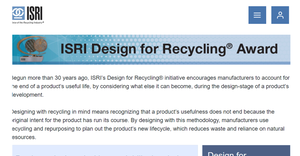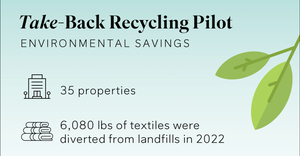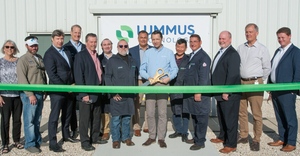May 1, 2002
Danielle Jackson
In mid-March, the Senate Environmental and Public Works Committee held hearings to discuss whether Congress should intervene in one of the industry's most controversial topics: interstate waste. Similar hearings were held in the House last August.
Historically, the courts have ruled that only Congress has the authority to regulate garbage flow because it is deemed a type of interstate commerce. The U.S. Supreme Court also recently refused to review a lower court ruling that Virginia's laws regulating out-of-state waste interfered with interstate commerce.
At the hearings, Sen. George Voinovich, R-Ohio, testified after introducing legislation that would allow states and municipalities to freeze waste imports at 1993 levels and set limits on how much imported waste a landfill could receive.
Harrisburg-based Pennsylvania Department of Environmental Protection (DEP) secretary David Hess also testified, claiming that as long as states are allowed to export unlimited amounts of garbage, there is no incentive for them to come up with a responsible way to deal with it themselves. Ohio and Pennsylvania are among the largest trash importers, along with Virginia, Michigan and Indiana.
But lawmakers from the major exporting states, which include New York, New Jersey, Illinois, Missouri and Maryland, pointed out that many communities want to import garbage because it generates revenue. Sen. Hillary Rodham Clinton, D-N.Y., told the committee that New York does not export to any community without consent and a host community agreement.
Bruce Parker, president and CEO of the National Solid Wastes Management Association (NSWMA), Washington, D.C., also testified that shipping garbage is a necessary part of an environmentally protective and cost-effective waste management system.
The Silver Spring, Md.-based Solid Waste Association of North America (SWANA) did not testify, but according to John Skinner, executive director and CEO, "[SWANA] supports the free flow of waste subject to traditional state and local controls, and doesn't believe that waste should be discriminated against based on its point of origin."
Unfortunately, says Bill Sells, legislative director for the Washington, D.C.-based Environmental Industry Associations (EIA), "The hearing basically was the same testimony that was heard in the House last year," he says. "Nothing has changed since then ... and I wouldn't expect anything to come out of it because there is a greater use of the free market for waste disposal than in the past."
Parker agrees. "Interstate waste has been before Congress for roughly the past 14 years" with the same results, he says. "But I believe that overall, the message has been successful." It is an open market issue, he says, noting that interstate commerce does not distinguish between good and bad articles of commerce.
Congress has not yet made a formal announcement to move further with the interstate issue.
You May Also Like


